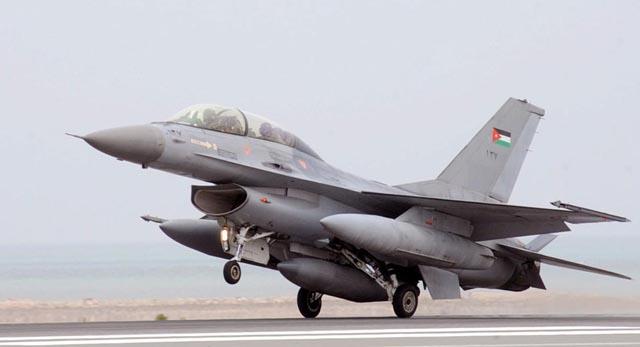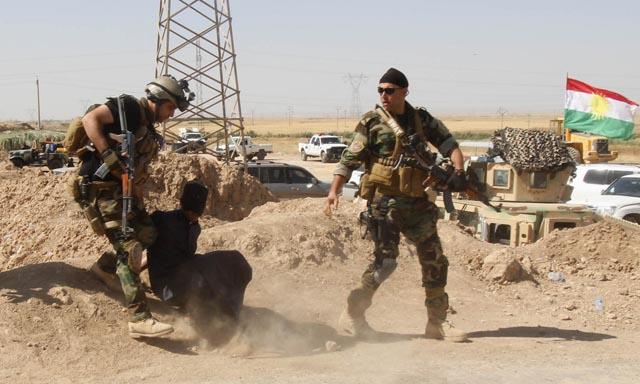You are here
Expanded anti-Daesh Arab front not workable for Jordan — experts
By Khetam Malkawi - Feb 24,2015 - Last updated at Feb 24,2015

AMMAN — Although Jordan is in the forefront of regional efforts to eradicate the Daesh terrorist group, the country cannot expand its military operations and fight on multiple fronts, experts said Tuesday.
Military analysts and opinion leaders interviewed by The Jordan Times explained that if Jordan wants to join Egypt in the fight against Daesh in Libya, this must be restricted to cooperation in the field of logistics, intelligence, planning and, to a certain limit, aerial attacks.
In reference to Egyptian President Abdel Fattah Al Sisi’s call for Arabs to field a united force against Daesh, military and political experts said forming an Arab coalition now to fight the threat of Daesh might not be workable.
They noted that few armies in Arab countries are well equipped and trained for a ground fight, and neighbours of Libya should be involved in the war against the terrorist group on that front.
As for Jordan’s capabilities, military and strategic expert Fayez Dwairi said Jordan can still only use air attacks and special operations without going into a ground war.
“Jordan cannot lead the war against terrorists on more than one front,” Dwairi told The Jordan Times.
However, he said, Jordan’s intelligence and military planning capabilities are strong and so some help can be offered to Egypt in these fields.
Retired major general and strategic analyst Mamoun Abu Nowar agreed.
He said expanding the war to fronts other than the ones affecting those across borders would adversely affect the country’s security.
He added that Jordanian and Egyptian forces are the best qualified among Arab militaries for this kind of war.
Abu Nowar also noted that in terms of numbers, the Egyptian forces are the largest in the region and Jordan can support them in logistics and planning without sending troops.
“The immediate threat is at our border… that is why we have to protect the home front,” the expert said, referring to the Kingdom’s borders with Syria and Iraq. He added: “We cannot fight three fronts… such a role is connected with internal security as we will become vulnerable from inside if we expand outside.”
He said Jordan cannot also go on in a long battle without all kinds of support from partners.
Political analyst and columnist Oraib Rantawi also agreed with the experts. He noted, however, that if Arab countries did form a “genuine and effective” coalition with real, rather than symbolic, participation from stakeholders, Jordan would not hesitate to be part of it.
He said Jordan’s decision makers are “certainly aware” of the country’s resources and will make sure they are not used up.
“We have realised many achievements in our war against Daesh with the support of all Jordanians… but the situation might change if Jordan expanded its role and spread itself thin,” Rantawi told The Jordan Times.
This was also echoed by Al Ghad columnist Fahed Khitan who noted that it is obvious that Jordan’s offer to help Egypt is to show support and that we fight in the same camp, but it would not be sending troops to fight in Libya or any front other than the one in its neighbourhood.
Both Khitan and Rantawi agreed that the recent visits of some of the Gulf countries’ leaders to Jordan are to show support to the Kingdom in its war against terrorism.
“It is also an acknowledgement of Jordan’s role in maintaining the security and stability of the Gulf countries,” Khitan commented.
Related Articles
Jordan's military capabilities and social make-up are key factors the country can rely on to repel any threats by external enemies or extremist groups, military and strategic experts said.
AMMAN — As eyes turn towards the Arab summit, taking place in Jordan at the end of this month, pundits believe that some positive, yet not m
AMMAN — Jordan is expected to classify groups in Syria into several categories depending on whether they are considered terrorists, not terr

















